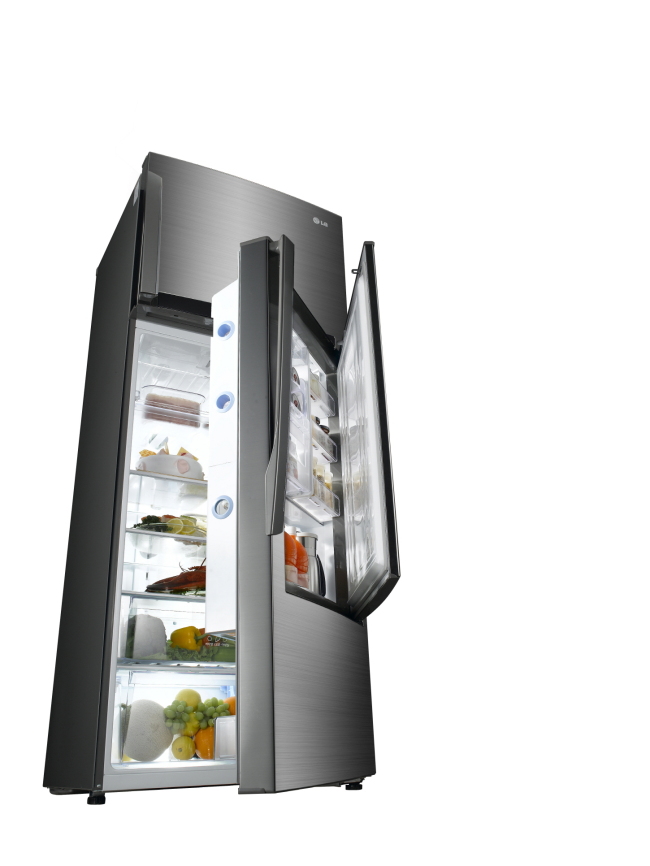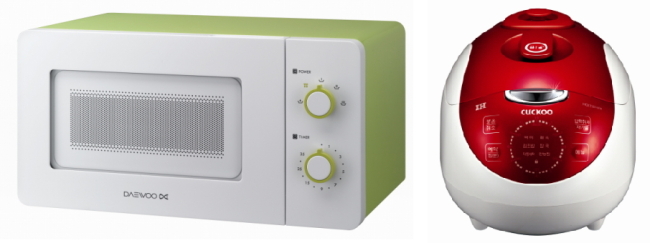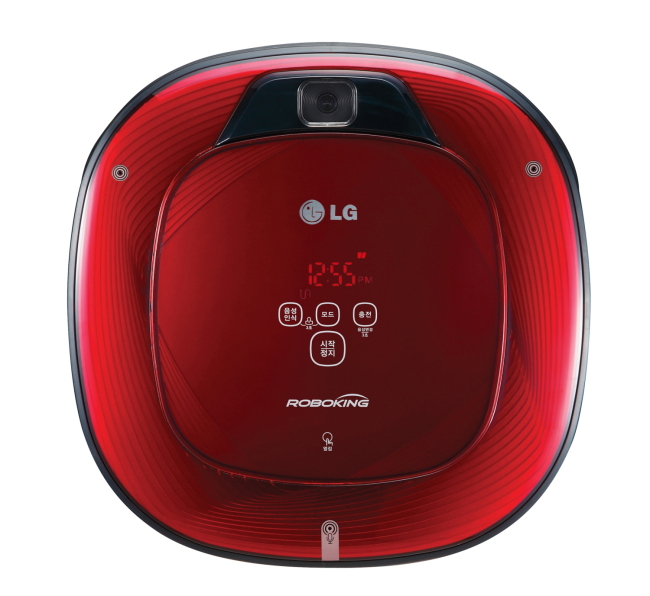
Kwon Min-jeong recently moved out of her parents’ house in Incheon to live closer to the marketing firm in Gangnam where she works as a manager. When she went shopping to buy furniture and home appliances for her new home, she chose to go small.
“Conventional home appliances for family use are expensive and do not even fit in my small apartment. I needed appliances that take up less space and consume less energy,” Kwon said.
“Conventional home appliances for family use are expensive and do not even fit in my small apartment. I needed appliances that take up less space and consume less energy,” Kwon said.

She bought a mini rice-cooker and microwave for her kitchen. Doing laundry with a washing machine made for a family of three or four was not economical. Washing only her clothes with a family-sized machine would be a waste of water and energy.
“I was happy to find this mini washing machine,” she said.
“I was happy to find this mini washing machine,” she said.

She bought a compact washing machine made by Daewoo Electronics. It is so compact it can even be hung on the wall. The washing machine saves her time, water and money.
Consumer electronics breaking down is another headache for singletons.
“Having a repairman when I am home alone makes me uneasy,” she said.
Consumer electronics breaking down is another headache for singletons.
“Having a repairman when I am home alone makes me uneasy,” she said.

Kwon chose her vacuum cleaner from among LG Electronics’ “smart” products, which sport a self-check function that can fix faults at the touch of a button.
People who live alone like Kwon are emerging as a strong consumer class in the local appliances market.
Among all households, 25.3 percent have a single occupant. The proportion is expected to rise to 30 percent by 2020, according to the Samsung Economic Research Institute. Single households spent a total of 50 trillion won ($47 billion) last year.
Home security is the most popular service for those living by themselves.
Kim Yu-ri, a Korea University student who lives alone in the Nowon-gu district of northern Seoul, has subscribed to KT Telecop’s security service “iNavi safe.” The service tracks a subscriber’s location in real time and dispatches security guards in case of an emergency. When a user presses the emergency button of a device installed at home or it detects an impact, its video camera instantly records the scene for 10 seconds and transmits it to the company’s control tower.
“I am satisfied with the service. Before subscribing to the service, I felt insecure at home because my apartment lacks security.”
In September, the Seoul Metropolitan Government began a service of dropping mail at designated places so that citizens can pick it up later safely. Mail left unattended in front of a door signal the house is unoccupied, making it a more likely target of burglary.
Diverse mobile apps are also available for single households. Information technology solution provider M2M System provides “App Daeri” for those who go home alone late at night. When the user enters the destination on the smartphone app, it automatically connects to call-taxi services.
AD Ventures’ app “Medilatte” searches the nearest hospital or clinic as well as provides medical and hospital information. Users can leave comments as a reference for other users.
Single households spend more proportionally than four-person households. One-person households on average have 32.9 percent of their income at their disposal. The number is about double the 17.2 percent figure for four-person households, according to a recent survey by the Korea Chamber of Commerce and Industry.
“It is imperative for businesses to roll out affordable, convenient and practical products to meet the needs of those who live alone,” said Lee Eun-mi, a researcher at Samsung Economic Research Institute. She authored a report on the trend of single households.
“As single households are emerging as a new kind of consumer, it is a must for companies to analyze their spending patterns, develop products to their tastes and rearrange distribution channels,” said Kim Kyung-jong, head of the distribution and logistics division at the Korea Chamber of Commerce and Industry.
By Shin Ji-hye (shinjh@heraldcorp.com)
People who live alone like Kwon are emerging as a strong consumer class in the local appliances market.
Among all households, 25.3 percent have a single occupant. The proportion is expected to rise to 30 percent by 2020, according to the Samsung Economic Research Institute. Single households spent a total of 50 trillion won ($47 billion) last year.
Home security is the most popular service for those living by themselves.
Kim Yu-ri, a Korea University student who lives alone in the Nowon-gu district of northern Seoul, has subscribed to KT Telecop’s security service “iNavi safe.” The service tracks a subscriber’s location in real time and dispatches security guards in case of an emergency. When a user presses the emergency button of a device installed at home or it detects an impact, its video camera instantly records the scene for 10 seconds and transmits it to the company’s control tower.
“I am satisfied with the service. Before subscribing to the service, I felt insecure at home because my apartment lacks security.”
In September, the Seoul Metropolitan Government began a service of dropping mail at designated places so that citizens can pick it up later safely. Mail left unattended in front of a door signal the house is unoccupied, making it a more likely target of burglary.
Diverse mobile apps are also available for single households. Information technology solution provider M2M System provides “App Daeri” for those who go home alone late at night. When the user enters the destination on the smartphone app, it automatically connects to call-taxi services.
AD Ventures’ app “Medilatte” searches the nearest hospital or clinic as well as provides medical and hospital information. Users can leave comments as a reference for other users.
Single households spend more proportionally than four-person households. One-person households on average have 32.9 percent of their income at their disposal. The number is about double the 17.2 percent figure for four-person households, according to a recent survey by the Korea Chamber of Commerce and Industry.
“It is imperative for businesses to roll out affordable, convenient and practical products to meet the needs of those who live alone,” said Lee Eun-mi, a researcher at Samsung Economic Research Institute. She authored a report on the trend of single households.
“As single households are emerging as a new kind of consumer, it is a must for companies to analyze their spending patterns, develop products to their tastes and rearrange distribution channels,” said Kim Kyung-jong, head of the distribution and logistics division at the Korea Chamber of Commerce and Industry.
By Shin Ji-hye (shinjh@heraldcorp.com)
-
Articles by Korea Herald








![[KH Explains] Can tech firms' AI alliances take on Nvidia?](http://res.heraldm.com/phpwas/restmb_idxmake.php?idx=644&simg=/content/image/2024/05/07/20240507050619_0.jpg&u=)









![[K-pop’s dilemma] Time, profit pressures work against originality](http://res.heraldm.com/phpwas/restmb_idxmake.php?idx=652&simg=/content/image/2024/05/08/20240508050705_0.jpg&u=20240508171126)
![[Today’s K-pop] NCT Dream to drop pre-release from 2nd Japan single](http://res.heraldm.com/phpwas/restmb_idxmake.php?idx=642&simg=/content/image/2024/05/08/20240508050725_0.jpg&u=)